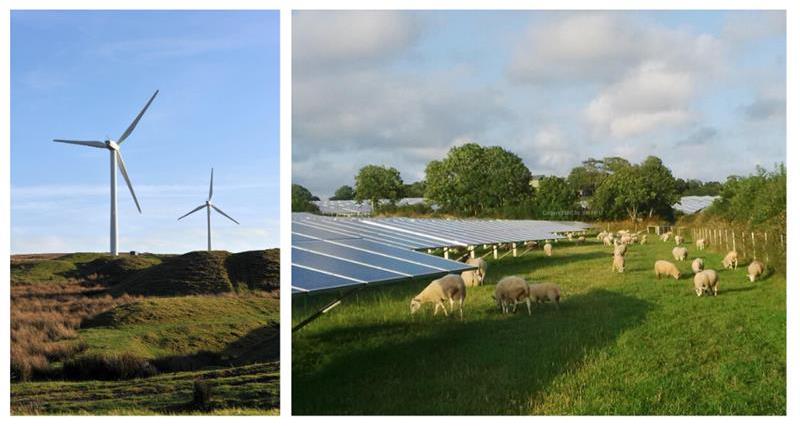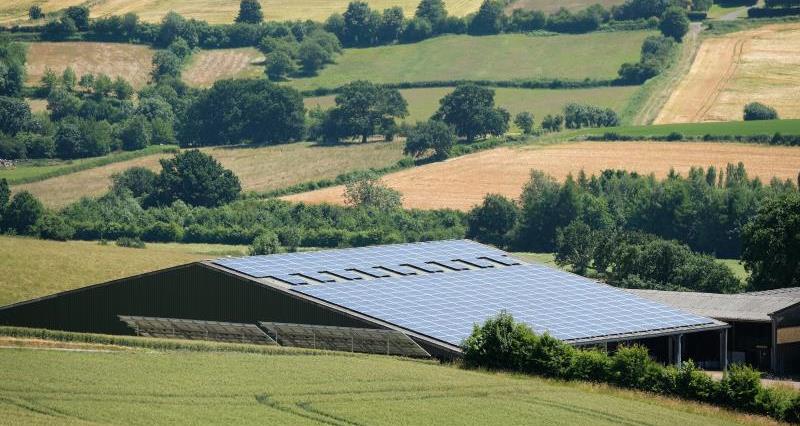Although productivity and efficiency can reduce the carbon footprint of a farm business significantly, harnessing the opportunity of clean energy production in the British countryside will be an essential element of the agricultural industry’s journey to net zero emissions.
There is a wide range of options for renewable energy generation on farmland, though not every option will be suitable for every farm. Many industry organisations, including NFU Energy, offer free initial advice to help you explore the next steps.
SolarSolar panel electricity systems, also known as photovoltaics (PV), harness the sun’s energy to generate electricity. The two main types are ground‑mounted arrays and roof‑mounted systems. Either may be suitable for use on‑farm and, depending on the size, can provide power to the farm, the national grid or both. |
WindWind power is generated through the turning of bladed turbines of various sizes. Larger, free‑standing turbines are erected in a suitably exposed position and can generate substantial amounts of electricity, often feeding into the grid and providing income. Smaller turbines can be mounted to buildings, generating power for the farm and/or offsetting other energy use. |
WaterHydro‑electricity is most frequently generated by the movement of water turning turbines. If you have significant volumes of water movement on your farm, hydro‑electricity generation may be an option for you. The infrastructure installation is often substantial, so this would usually be a long-term investment, although ‘Micro Hydropower’ systems are suitable for some sites. |
GroundRenewable energy generation from ground-sources: - Biomass systems burn biomass (eg. wood, woodchips, straw, pellets, and clean untreated waste) to power central heating and hot water boilers. - Ground source heat pumps use pipes that are buried underground to extract heat from the ground, which is then used to heat radiators, other heating systems and hot water in your home. |

